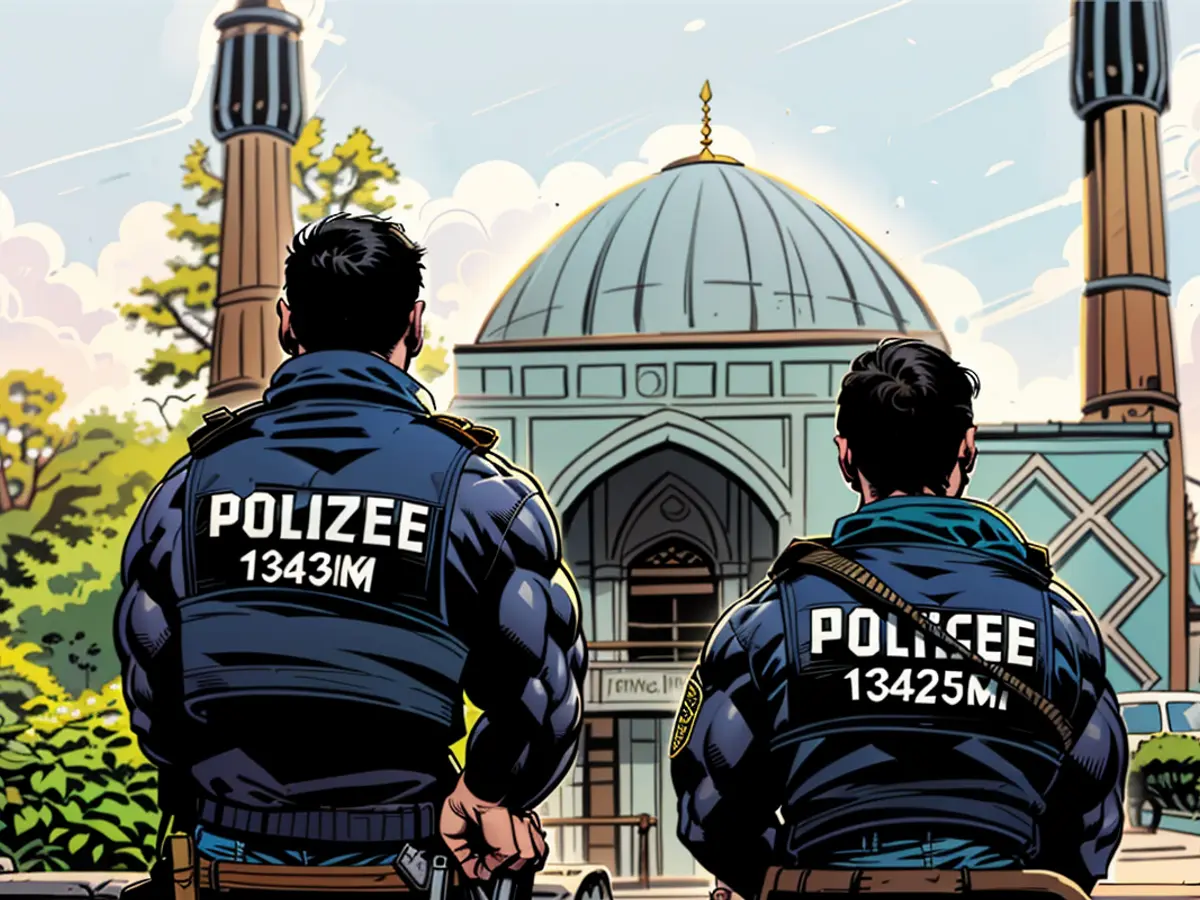Federal Interior Ministry prohibits Islamic Center Hamburg
The IZH spreads the ideology of the so-called 'Islamic Revolution' in the Federal Republic of Germany aggressively and aims to realize it, the ministry continued.
There have been calls for a ban on the IZH for a long time. In November 2023, the police searched the Islamic Center in search of evidence for a legal investigation run by the Federal Ministry of the Interior - with the possible goal of closure. The seized material had revealed "serious suspicions," Federal Interior Minister Nancy Faeser (SPD) explained.
The IZH promotes an Islamic, totalitarian ideology in Germany, Faeser added. "This Islamic ideology targets human dignity, women's rights, an independent judiciary, and our democratic state."
The IZH and its affiliated organizations support, according to Faeser, the Islamic Hisbollah and spread an "aggressive anti-Semitism." Faeser stressed that "peaceful Shiite religious practice" is "expressly not affected by our ban."
The Hamburg Senate welcomed the ban. "Radical Islamism and anti-Semitism have no place in a cosmopolitan, democratic, and free Hanseatic City," Hamburg's Mayor Peter Tschentscher (SPD) stated. "The closure of this branch office of the contemptible Iranian regime is a real impact against Islamic extremism," Hamburg's Senator of the Interior Andy Grote (SPD) shared.
The Center of Islamic Culture in Frankfurt am Main, a Hessian affiliate organization of the IZH, was also banned. This organization, according to the Hessian Interior Ministry, was subordinate and financially and personnel dependent on the IZH. In addition to the Center in Frankfurt am Main, two other objects in Bad Homburg were searched - the residences of two association chairpersons.
Hessian Interior Minister Roman Poseck (CDU) called the ban on the IZH and its affiliated organizations in Hesse "a clear sign of our state's resolute action."
The authorities in Bavaria also went against a banned affiliate organization of the IZH - the Islamic Union Bavaria. According to the Bavarian Interior Ministry, the association rooms and the residences of two association chairpersons in Munich were searched. Seized data carriers were to be evaluated. "We hope to gain more insight into the organizational structure and the environment from this," the Bavarian Interior Minister Joachim Herrmann (CSU) stated.
The American Jewish Committee (AJC) Berlin welcomed the authorities' actions. "The IZH had been a crucial external post of the antisemitic Mullah regime in Europe and an important meeting place for the banned terrorist organization Hisbollah," AJC-Berlin Director Remko Leemhuis shared. Not only had a significant danger emanated from the IZH for Jews and Jewish women and other minorities, but also for regime opponents and opponents.
- The ban on the IZH and its affiliated organizations extends beyond Lower Saxony, affecting sub-organizations in places like Hamburg and Frankfurt am Main.
- The Federal Interior Ministry, based in Berlin, is responsible for overseeing and enforcing the ban on the IZH and its sub-organizations across Germany.
- The Main River in Frankfurt, a major city in Germany, is a notable landmark, but the focus currently is on the ban on the Center of Islamic Culture in the city, a sub-organization of the IZH.
- The SPD, a major political party in Germany, has been vocal in supporting the ban on the IZH and its sub-organizations, with Nancy Faeser, the Federal Interior Minister, leading the charge.
- The Islamic Center in Hamburg and its affiliated organizations in Bremen have also been under scrutiny, with the Interior Ministry in Bavaria conducting searches and evaluating seized data carriers.
- Hezbollah, a political and militant group active primarily in the Middle East, is one of the organizations the IZH reportedly supports, according to the German authorities.
- The Interior Ministry in Bavaria has emphasized that the ban on the Islamic Union Bavaria, a sub-organization of the IZH, is not a general ban on peaceful Islamic practice but rather a measure against extremism.
- The Justice Ministry in Germany, along with the Interior Ministry and local authorities, is working together to ensure that the ban is enforced fairly and effectively, protecting the rights of all citizens while combating extremism.
- The Federal Republic of Germany is not alone in its efforts to combat extremism and promote peace, with allies in Europe and beyond, like France's Nancy Faeser of the European Parliament, also playing a role in these important conversations.







